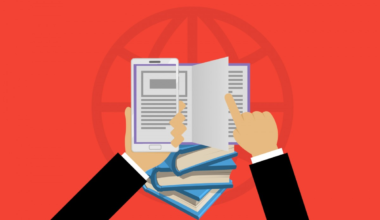digital library , in its most basic form, is an electronic repository of information. It can encompass websites, blogs, databases, and digital archives, providing users with a wide range of forms and types of resources. In today’s technology-oriented world, digital libraries offer a wealth of convenience and utility.

What are the Benefits?
The advantages of a digital library include broad access to quality resources, often with no registration or cost. Many digital libraries have built-in search capabilities and allow for quick retrieval of needed material. In addition, materials stored in a digital library can be in any format, including text, audio, visual, and multimedia formats.
Digital libraries also enable users to access large collections of materials on a single platform. This makes it easier for busy students and professionals to quickly research multiple sources without having to browse multiple sites for individual pieces of information. In addition, digital libraries provide convenient delivery methods, such as streaming video and audio, helping users to get what they need quickly and efficiently.
The Role of Content Curators
Content curation plays an important role in the effectiveness of digital libraries. Content curators help keep digital libraries up to date and organized by finding and selecting valuable content from varying sources. Content curators use keyword searches and other techniques to find suitable content that meets specific criteria. They act as librarians for digital library users, and can save users time and energy by doing the legwork to find materials.
Preserving and Promoting Heritage
Digital libraries are also invaluable tools for preserving cultural heritage. For example, museums and historical societies around the world are investing significantly in digitizing their archives so that these materials can be archived and made accessible online. Furthermore, digital libraries enable these institutions to make their collections more widely available to a global audience. By leveraging the power of the internet, these organizations are able to share their collections with the world and preserve them for the future.
Digital libraries are also effective tools for promoting diversity and inclusion. By making information and resources available to historically marginalized groups, digital libraries can serve as mechanisms for social change and empowerment. Digital libraries allow users to easily search for and access diverse perspectives, enabling them to gain new insights and understanding.
Bringing Quality Education to All
Finally, digital libraries can be powerful agents of educational change. They enable teachers to bring a broader range of curriculum to the classroom and create resources that better meet the needs of all students. Furthermore, digital libraries provide a wide range of learning resources to anyone with access to the internet, allowing people to pursue self-directed learning outside of the traditional classroom setting.
Digital libraries have become essential tools for accessing and sharing knowledge in the digital age. With the right combination of content curation, preservation, and promotion, digital libraries can truly unlock the power of knowledge and bring quality education to all.
